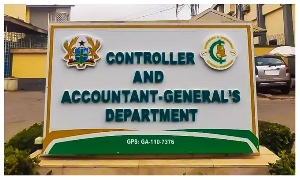I seize this opportunity to grease the palms of colleague teachers who are busy preparing to conduct midterm exams. Accordingly, we start from some basic terms associated with testing. When teachers are writing/typing ‘questions’ on pieces of paper for their students to answer, what they are actually doing is SETTING EXAMS and not setting exam ‘questions’. That is, we set exams. Also, our students/pupils SIT FOR or TAKE exams. That is, pupils or students do not write exams but they take exams or tests.
What teachers/lecturers type or write on the exam paper or chalkboard for students to provide responses for are called ITEMS. The term ‘question’ is imprecise because not all items are phrased as questions. Compare the items below: 1. One of these is solid. A. Fanta B. Milk C. Book 2. Draw line XY of length 10 cm. 3. What is the capital town of Ghana? Reading from Number 1 to 3, you notice that only Number 3 is a question. But what do all the three have in common? They all present some problems to be solved. Therefore, any group of words that presents a problem to be solved is termed an ITEM. The item could be a direct question, incomplete statement or activity. To read more on our test construction procedures, call us on the contact lines below this write-up.
Next, we address three basic spelling problems: MIDTERM, HOMEWORK and CLASSWORK. All preceding words are solid compounds (compound words without hyphens or spaces in between the parts).
The tendency is form many teachers/students to wrongly write either MID TERM or MID-TERM. The general rule is that nearly all words prefixed with mid- are solid, eg, midwife, midweek and midday. What hoodwinks many people to either separate or hyphenate MIDTERM and HOMEWORK is the interpunct that is used to show syllabification in Oxford Advanced Learner’s Dictionary. The interpunct is dot that is raised a bit from the baseline of the text. It only shows the syllable breaks or the number of syllables in the words (eg, mathematics has three interpuncts: math.emat.ics). Never confuse the interpunct or middot with a hyphen or space. Thus, midterm and homework are solid compound words.
The interpunct is also used in inorganic chemistry to show hydrated compounds. (It is inserted in between the formula for the said compound and that for water. Again, never confuse a dot or full stop with an interpunct when writing the chemical formula for copper(II) sulfate pentahydrate. An interpunct is raised above the baseline.
The terms HOMEWORK and CLASSWORK are precise academic terms. However, the expressions EXERCISE and ASSIGNMENT are somewhat vague when used to denote schoolwork. All you need to remember is that both terms (homework and classwork) are non-count nouns. Being uncountable nouns, the terms can neither be preceded by numerical quantifiers nor be inflected with ‘s’ to denote plurals (ie, you cannot say ‘ I gave 5 homework or 5 homeworks). Instead, you can say ‘I gave 5 items of homework or 5 pieces of homework or 5 homework assignments. In the last expression, 5 homework assignments, the term homework is used ‘adjectivally’ to modify assignments.
Wrong use of uncountable nouns is one of the major errors committed by WAEC. For example, in integrated /intigreited/ science BECE 2014 (No. 4 c), WAEC wrongly pluralized the term jewellery (a non-count noun) as jewelleries. Again in WASSCE May/June 2014 (No. 3), the exams council placed an indefinite article in front of the word equipment (a non-count noun). The item reads as this: Figure 3 is an illustration of a farm equipment. If you like, retype the same item on your computer, you’ll notice that MS Word with underline the part ‘a farm’ with a green wavy line. The wavy line tells you to crosscheck. But exactly why the ‘renowned’ exams council keeps displaying such embarrassing errors is unknown. The item could be rephrased as ‘Figure 3 illustrates a piece of farm equipment’. Do you best to avoid such unpardonably errors.
Returning to our imprecise terms, we focus on the expression BLACKBOARD. The term blackboard creates the impression that the board must always be black. In practice, you may paint the board with any colour and use chalk of any other colour that creates a contrast between the words and the board. But because the colours black (for the board) and white (for the chalk) create a perfect contrast, many people hardly remember that coloured pieces of chalk may be conveniently used on boards of different colours. Hence, the term chalkboard sounds academically better because it tells the listener that marker pens are never used for writing on the board.
The imprecise or ‘wrong’ term associated with blackboard is DUSTER. What is duster? My search from the dictionary and the Net never tells me that the device used to clean marks/text on the chalkboard is duster. Also crosscheck for yourself. In reality, when a teacher says ‘give me a duster to clean the board’, what s/he really means is a CHALKBOARD ERASER. The device used to clean writing is an eraser. But to specify the exact type or use of the eraser, you may say ‘pen(cil) eraser or chalkboard eraser. Therefore, use the term chalkboard eraser when referring to a pad or block of wood with woollen carpet attached that is used to clean drawings/writings on the chalkboard or markerboard.
In conclusion, we (teachers) set exams and our students sit for or take the exams. Soon our students will have to take their midterm tests or exams. Each day, we give students classwork to evaluate our lesson delivery. We usually add homework. GES rules require teachers to give not less than 5 pieces of homework per term. During teaching, some of use chalk to write onto the chalkboard, while others use marker pens to write on markerboards. To clean diagrams and words not needed on the board, we use chalkboard or markerboard erasers to rub the surface of the board. Long live practising teachers! Long live Kwame Nkrumah’s Ghana! Idris Pacas 0209101533, 0501394611 & iddrisuabdulai12@yahoo.com
Opinions of Thursday, 23 October 2014
Columnist: Pacas, Idris















